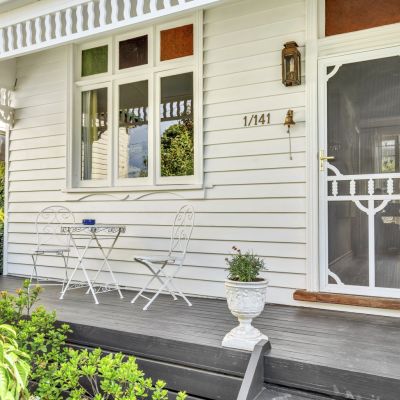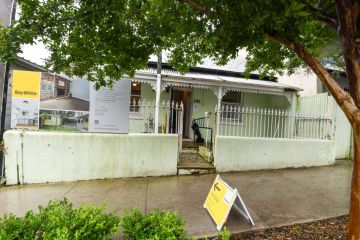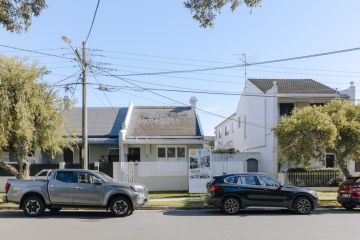How Madison, 23, and Isabelle, 19, just bought a house
Geelong sisters Madison, 23, and Isabelle Camm, 19, always dreamt of buying their own homes but didn’t think it would be possible any time soon.
But after learning about the federal government’s Home Guarantee Scheme in mid-2024, the sisters pooled their savings and asked their local bank about a home loan. By November, they had moved out of their parents’ house and purchased their first home together – a three-bedroom property in Leopold.

Madison and Isabelle are among the 200,000 Australians who have used the federal government’s Home Guarantee Scheme to purchase their first property.
“I found out that you could apply to [the scheme] as siblings,” Madison told this masthead. “I thought, we’ve got savings, we’ll just go to the bank and see if it’s possible, and then if it’s not, we’ll just go rent.
“So we just went to the bank, and we said we had this much as a deposit, and the lender basically said, ‘you’re all good, you can start looking for houses’. I was so surprised.”
Madison, who works in childcare, said it wouldn’t have been possible for her to purchase a property on a single income or without financial aid.
“It was just helpful to do it with my sister, otherwise I wouldn’t be owning a home right now,” she said. “If we didn’t go through the scheme, we wouldn’t have been able to do it.”
The Home Guarantee Scheme enables single applicants earning less than $125,000 a year or joint applicants earning less than $200,000 to purchase a home with as little as a 5 per cent deposit, while the government covers the other 15 per cent. This also means buyers can avoid paying lenders mortgage insurance.
NAB executive for home lending Denton Pugh said he had seen a 30 per cent increase in customers using the scheme, which had made home ownership a possibility for young renters.
“If you combine property values and what the 10 or 20 per cent deposit now looks like, it’s a huge amount of money, so I think some people are going, well, [buying a home] is just not possible for me,” Pugh said.

“What this scheme enables [buyers] to do is get into the property market, stop renting, and without it, some [buyers] wouldn’t have got in.”
Pugh said rising rental costs had made it difficult for many hopeful home buyers to save a deposit, with many relying on the bank of mum and dad, or forced to pay lenders mortgage insurance.
Pugh added that it was much easier for buyers on a dual income to purchase a property.
The Home Guarantee Scheme was expanded beyond single and married applicants in 2023 to allow siblings, family members and friends to purchase a home together.

Housing Australia data shows that one in three first home buyers have used the scheme to purchase a property.
Mortgage broker and director at 40 Forty Finance Will Unkles said the scheme, combined with Melbourne’s relatively stagnant housing market, had created the ideal opportunity for first-time buyers. Melbourne home values fell 3 per cent last year, while Sydney rose only 2.3 per cent, on CoreLogic data.
“It’s a really stable environment for a first-time buyer to be confident enough to get into the market, so you’re in a position where, by using the scheme, you don’t have any extra costs outside of stamp duty, depending on your purchase price, and no lenders mortgage insurance,” Unkles said.
He said while it was possible to purchase a home without external help, the Home Guarantee Scheme helped fast-track first-time buyers who might have otherwise spent years saving.
“This eliminates the need for a massive savings pool, but the secondary challenge is always your income, which determines the amount of money you can borrow.”
On the flipside, a previous Productivity Commission review found that earlier government schemes that spent money to help first home buyers had worked against improving affordability.
AMP chief economist Shane Oliver said while the scheme could help buyers enter the market sooner, it also increased demand.
“From the point of view of an individual buyer, it’s good news, but it doesn’t do anything to improve housing affordability,” Oliver said.
“In fact, you could argue it makes [housing affordability] worse if you’re enabling people to borrow more than they otherwise would have been able to borrow.”
We recommend
We thought you might like
States
Capital Cities
Capital Cities - Rentals
Popular Areas
Allhomes
More










